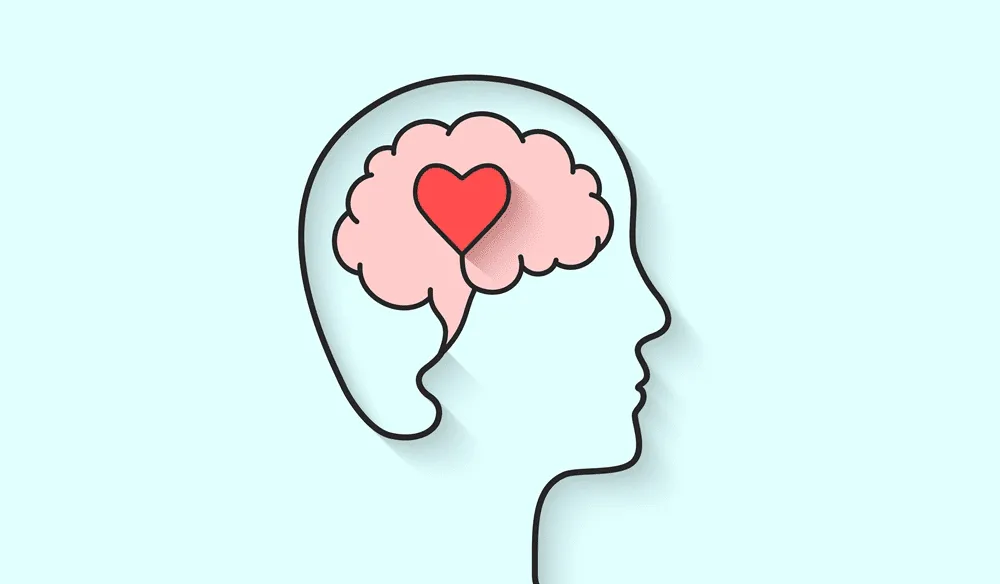Dr. Kyle Christensen | DeGrey Christensen
Healing at Home | Blog
Dr. Kyle Christensen | DeGrey Christensen
Healing at Home | Blog

Emotional Corruption Index
The following is a list of common emotions, their meanings and purposes, and what they might look like if fixated upon or corrupted.
Acceptance: Recognition of reality and understanding that this is the way things are. If corrupted, acceptance can become resignation to ideas that are not true.
Admiration: Respect and warm recognition. Pleasurable reflection. If corrupted, admiration can become idolization.
Adoration: Deep love and respect. Worship. If corrupted, adoration can become obsession and idol worship.
Aggression: Forceful, assertive, passionate, and energetic. Boosts competition and seizes opportunity. When corrupted, aggression becomes violence, brutality, and belligerence.
Amusement: Finding entertainment and humor. Can help to ease tension. When corrupted, amusement becomes flippancy, disrespect, and addiction.
Anger: A warning that things are going too far. Meant to get people to stop and reevaluate their actions. If corrupted, anger becomes bitterness, contempt, loathing or unreasoning hate.
Annoyed: Irritation, a mild form of anger. Serves as an early warning sign of anger and warns that if an action or course is continued, unpleasantness may follow. If corrupted, annoyance can become resentment, full-blown anger, or perfectionism.
Anticipation: Expectation or prediction of something. This helps us prepare for things to come. If corrupted, anticipation becomes impatience, frustration or dread.
Anxiety: Unease, apprehension, or disquiet. Anxiety makes us uncomfortable in our situation and causes us to seek change. If corrupted, anxiety can be crippling, confusing and maddening.
Appreciation: Recognition, enjoyment and understanding of the good of something. If corrupted, appreciation can become entitlement, taking something for granted, or gluttony.
Arousal: Attraction or sexual desire. Creates connection, intimacy, and leads to the continuation of the human race. If corrupted, arousal becomes lust, selfish pleasure-seeking, and sexual deviance. Pornography is a common habit of those with corrupted arousal.
Awe: Reverential respect mixed with wonder and fear. Awe helps us remain humble and recognize things beyond our scope of ability. If corrupted, awe becomes excessive humility or self-deprecation.
Boredom: Weariness in the lack of occupation or lack of interest in a current task. Boredom causes self-reflection and causes us to seek what is important to us. If corrupted, boredom becomes lethargy and laziness.
Calmness: Peace, quiet, and without worry. Calmness is the state of emotional balance and helps us think clearly, without emotional bias. The best decisions are made in a state of calm. If corrupted, calmness can become apathy, numbness, and disinterest.
Confusion: Lack of understanding, uncertainty. Confusion causes us to stop and seek understanding and clarity before continuing. If corrupted, confusion can become delusional, or can cause someone to shut down completely.
Control: Confidence and understanding of what can be influenced. Control allows a person to take accountability and direct their actions for their own benefit. If corrupted, control begins to extend to others and tries to control people, things, and events outside the scope of the individual’s actual ability.
Craving: Need or desire. Cravings guide us to what we need to be healthy and functional. If corrupted, cravings become lusts, insatiable appetites, and addictions.
Delight: Extreme pleasure or satisfaction. If corrupted, delight becomes pleasure-seeking, indulgence, and gluttony.
Devotion: Love, loyalty, or enthusiasm for a person, activity or cause. If corrupted devotion becomes idol worship and obsession.
Disappointment: Sadness or displeasure caused by non-fulfillment of expectations. Disappointment is the natural result of things not going someone’s way. It allows us to mourn the loss of opportunity. If corrupted, disappointment becomes despairing, frustrated, or angry.
Disgust: Revulsion or strong disapproval of something unpleasant or offensive. Disgust is meant to keep us away from things that can cause harm (physically, mentally, emotionally, spiritually, or societally). If corrupted, disgust can become self-loathing, or be directed at things that should not warrant that response.
Distraction: Diversion, or removal from one focus to another. Distraction allows us to de-stress and pulls us away from the hard or painful things in life so we can come back later with a clearer mind. If corrupted, distraction becomes agitation, avoidance, and irresponsibility.
Embarrassment: Self-consciousness or awkwardness. Embarrassment keeps us in line, socially. This helps us know when we are doing things that may cause us to be “cast out of the tribe” and gets us back on track. If corrupted, embarrassment becomes shame and can cause us to isolate ourselves.
Empathic Pain: Resonating with, relating to, or sharing another’s pain. Empathic pain allows us to make connections with others and help them through hard times. If corrupted, empathic pain becomes guilt for things we are not responsible for, or despair.
Excitement: Great enthusiasm or eagerness. Excitement helps us look forward to all that could go right in a situation (the opposite of fear). If corrupted, excitement becomes impatience, or mania (extremely exaggerated or elevated emotional responses).
Faith: Complete trust or confidence in someone or something. Faith motivates action. We do not work for something unless we have faith that something will come from it. If corrupted, faith becomes blind, misplaced/misguided, or unquestioning.
Fear: Distress aroused by potential danger or unpleasantness. Fear (better described as respect) is meant to keep us safe by causing us to fight, flee from, or avoid things that could do us harm. If corrupted, fear becomes paralyzing or terrifying, which makes situations more dangerous.
Frustration: Annoyance or upset at the inability to achieve or change something. Frustration motivates us to try different solutions than what has not worked or change our expectations. If corrupted, frustration becomes rage or resignation.
Guilt: The feeling of having done something wrong or of having failed. Guilt motivates us to change and do better in the future. If corrupted, guilt becomes shame, self-loathing, worthlessness, and disgust.
Hate: Intense or passionate dislike. Hate sets the bar for what is always unacceptable and what will immediately cause the anger response (ex. I hate crime, I hate drugs, I hate porn, I hate this couch, etc.). If corrupted, hate ceases to be about concepts, behaviors, ideas or things, and is directed at people (I hate him). Corrupted hate triggers aggression and violence.
Helpless: Loss of control or insecurity. Helplessness lets us know when we’ve hit the wall between what we can and can’t control. If corrupted, helplessness can become hopelessness, depression, and despair. Helplessness is corrected by taking inventory of what we actually have control over and acceptance over what we don’t.
Interest: Wanting to know or learn more about something. Interest helps us explore life and our passions. If corrupted, interest becomes insatiable curiosity, or obsession.
Jealousy: Uneasiness from suspicion or fear of rivals. Jealousy can help preserve social bonds and drive us to engage in behaviors that maintain relationships. Jealousy helps us see our deficiencies and change to keep those we love from leaving. If corrupted, jealousy becomes resentful and manipulative, or it can become obsessive and fearful.
Joy: Great pleasure and happiness. Joy is the ultimate reward for living a fulfilling life. If corrupted, joy becomes pleasure-seeking, selfish, and all about the feelings of happiness instead of the cause of happiness.
Love: Deep affection or pleasure in something or someone. Love is a combination of several emotions: respect, trust, joy, excitement, acceptance, etc. If corrupted, love becomes possessive, selfish, needy, and jealous. The hallmark of true love is doing what is best for the object of the love regardless of how it affects the self.
Loneliness: Sadness at being without companionship. Loneliness drives us to seek the company of others, to step out of our shell, and make connections. If corrupted, loneliness becomes neediness, depression, despair, or resentment at those that could have been friends.
Neediness: Desire to have emotional support from others. Neediness drives us to obtain what we feel we need from others. This could be companionship, affirmation, praise, or approval. It is good to be with others. This is a legitimate need. We are not meant to be alone. If corrupted, need becomes greedy, obsessive, and suffocating and succeeds only at driving away those we “need”.
Nostalgia: wistful or sentimental yearning for the past or some past feeling. Nostalgia can remind us of old joys and good things in life. Revisiting these can be a delight. If corrupted, nostalgia becomes obsessive, distracting, and depressive.
Pensive: Deeply or seriously thoughtful, meditative. Pensiveness allows us to take a moment to reflect on our thoughts and feelings, it can lead to meditation, which can be beneficial. If corrupted, pensiveness can become broody and even lead to depressiveness.
Pride: Deep pleasure or satisfaction derived from achievements, qualities, or possessions. Pride over true accomplishments or for loved ones who have worked hard is deserved and can improve relationships. Every son wants to make his father proud. It is good to take pleasure in your accomplishments. If corrupted, pride becomes boastful and elevates a person above others, it can be placed on things other than accomplishments, it can become stubborn insistence of superiority or it can become delusional.
Rejection: Feeling dismissed, spurned, or cast off. Rejection, while painful, helps us realize that other people have their own lives, desires, and priorities. It is humbling. But it is important to realize that most people don’t reject us with malicious intent, just out of a difference of desires. If corrupted, rejections becomes low self-esteem, despair, and depression.
Relief: Feeling of reassurance or relaxation following a period of stress or anxiety. Relief is much needed decompression after intensity. If corrupted, relief becomes laziness, avoidance, and indulgence.
Respect: Regarding something or something for it’s abilities, value, or worth, regardless if one like’s or agrees with it/them. Respect keeps us from underestimating things and, in some cases, this keeps us safe. Proper respect is the true function of fear. If we respect something’s danger, we regard it’s ability to harm us and account for that in our interactions with it. If corrupted, respect becomes fear and we begin to panic. This makes situations more dangerous (as opposed to less dangerous).
Romance: Excitement and mystery associated with love or remoteness from everyday life. Romance makes sexual love fun. Romance can increase intimacy and renew the excitement in a relationship. If corrupted, romance can lead to infidelity, idealism, and delusions of what love actually looks like (which can lead to toxic relationships).
Sadness: Grief, regret, or unhappiness. Sadness is a reflection of love or joy lost. It helps process the loss of loved ones, opportunities, familiar places or things, etc. If corrupted, sadness becomes depression, despair, and hopelessness.
Satisfaction: Contentment, fulfillment, gratification. If corrupted, satisfaction can become complacency.
Shock: Disturbed surprise. Shock gives us a moment to come to terms with something sudden and unpleasant. If corrupted, shock can become horror, anger, or lingering fear.
Stress: Emotional strain or tension resulting from demanding circumstances. Stress motivates urgency and action. Without stress, nothing would get done. If corrupted, stress becomes overwhelm, or anxiety, or shuts a person down completely.
Submission: Humility, meekness, and accepting of others' authority. Submission allows us to put others before ourselves, to allow others the chance to lead and grow, and cultivates teamwork. If corrupted, submission can become timidity, spinelessness, and accepted victimhood.
Surprise: Mild astonishment or shock at something unexpected. If corrupted, surprise can become fear, anxiety, or paranoia.
Suspicious: Cautious distrust, misgiving, or doubt. Suspicion can be a warning that all things are not as they seem and cause us to ask questions that can lead to increased clarity. If corrupted, suspicion can become paranoia, cynicism, and misplaced doubt.
Trust: Firm belief in the reliability, truth, ability, or strength of someone or something. Trust is the basis for all good-faith interactions with people. If corrupted, trust results in blind faith, naivety, and gullibility.
Unappreciated: Not being understood, recognized, or valued. Feeling unappreciated allows people to recognize when they may be taken advantage of or when they need to reevaluate their role in a relationship or organization. If corrupted, unappreciation can lead to entitlement, arrogance and pride.
Vigilance: Keeping alert and watchful. Helps us be aware of any potential dangers. If corrupted, vigilance can become paranoia, and obsession.
Worry: Anxiety, concern, or uncertainty over potential problems. Worry keeps stressors in the front of the mind and informs on the seriousness of a situation. If corrupted, worry becomes fear, anxiety, and can become an obsessive habit.
Check out our Youtube Channel
How to make Apple Cider Vinegar
How to Make Sauerkraut
Introduction to Cold Laser Therapy
Cold Laser Acupuncture Treatment
Healing @ Home: Allergy Elimination
Releasing Trapped Emotions
Intro to Muscle Testing
How to Dry and Revive Your Sourdough
Get In Touch
Email: kylesinthegarden@gmail.com
Address: 1172 E 100 N #12, Payson, UT 84651
Hours: Mon – Thur | 9:00am – 5:00pm
Phone Number: (801) 360-0749

